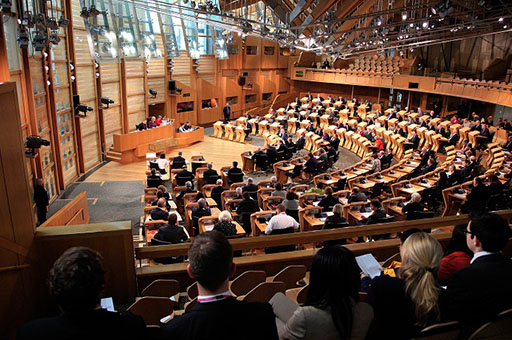2 The work of MSPs
In Scotland every individual is represented by several MSPs, one for the constituency in which they live and others for the larger region in which they live.

In Scotland MSPs have a number of roles and are expected to demonstrate certain characteristics such as honesty and integrity. Read the information in Box 3 taken from the Code of Conduct for Members of the Scottish Parliament 6th Edition (2016).
Box 3 Key principles underpinning the Code of Conduct for MSPs
3.1.2 These principles set the tone for the relationship between members and those they represent and between the Parliament and the people of Scotland.
Public duty
3.1.3 Members are expected to act in the interests of the Scottish people and the Scottish Parliament. Members should uphold the law and act in conformity with the rules of the Parliament.
3.1.4 In order to exercise their public duty, members must take the oath of allegiance or make a solemn affirmation as explained in Rule 1.2 of the Standing Orders.
Duty as a representative
3.1.5 Members should be accessible to the people of the areas for which they have been elected to serve and represent their interests conscientiously.
Selflessness
3.1.6 Members should take decisions solely in terms of the public interest. They should not act in order to gain financial or other material benefit for themselves, their family or friends.
Integrity
3.1.7 Members have a duty not to place themselves under any financial or other obligation to any individual or organisation that might reasonably be thought to influence them in the performance of their duties.
Honesty
3.1.8 Members should act honestly. They must declare any private interests (as required by the Interests of Members of the Scottish Parliament Act 2006) relating to their public duties and take steps to resolve any conflicts arising in a way that protects the public interest. The categories of registrable interest are outlined in the schedule to the Act. The schedule is contained in Volume 4 of the Code.
Accountability and openness
3.1.9 Members are accountable for their decisions and actions to the Scottish people. They should consider issues on their merits, taking account of the views of others.
3.1.10 Members should be as open as possible about their decisions and actions.
Leadership
3.1.11 Members should promote and support these principles by leadership and example, to maintain and strengthen the public’s trust and confidence in the integrity of the Parliament and its members in conducting public business.
